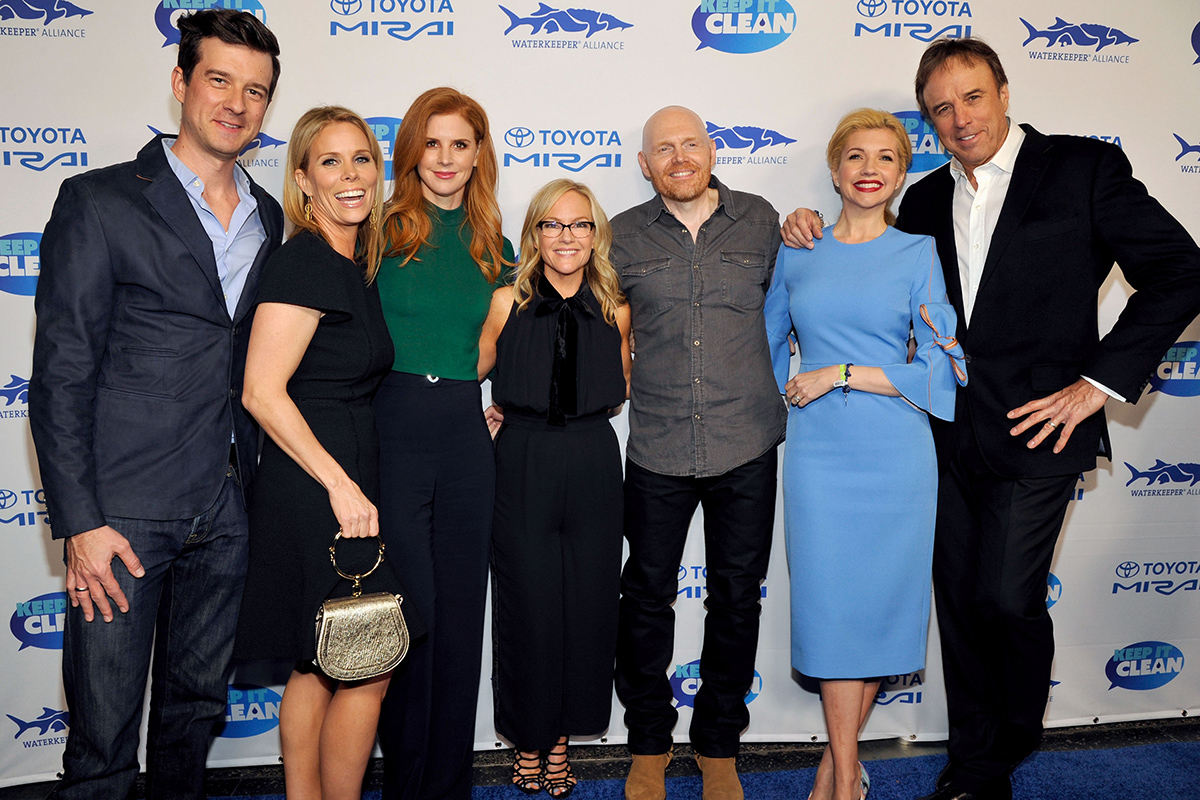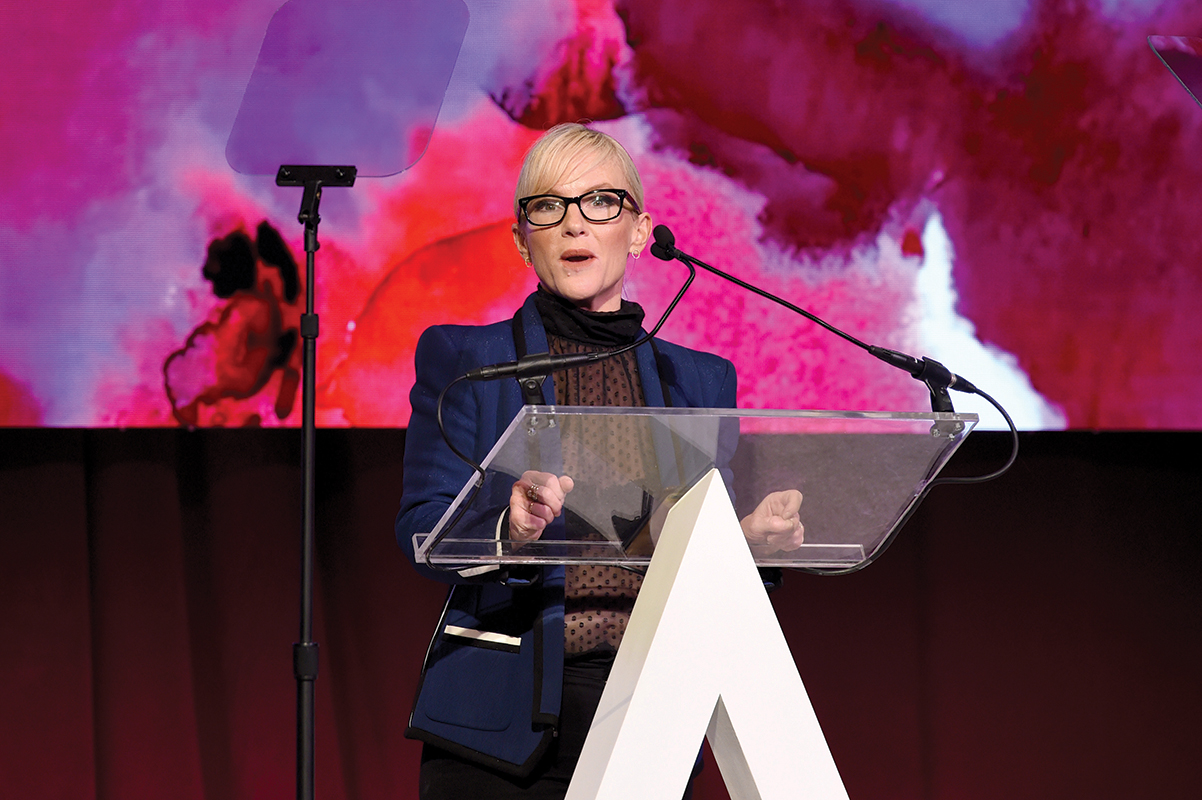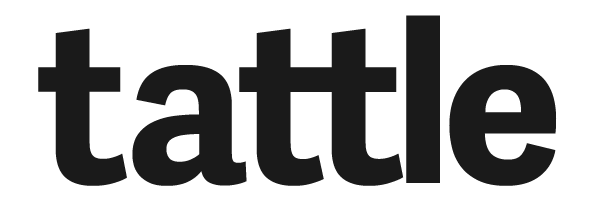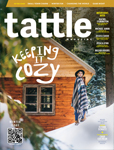Rachael Harris on Cleaning Up Our Waterways, Parenting and What’s Next

At Tattle, we’re all about inspiring our children and each other to take care of the planet. This issue we’re focusing on the oceans and water. You work with an organization called Waterkeeper Alliance. Could you tell us what a Waterkeeper is and what Waterkeeper Alliance does?
The Waterkeeper movement first started in 1966 with a group of fishermen on the Hudson River in New York, and today, Robert F. Kennedy, Jr. is the president. Waterkeeper Alliance exists because there is a threat to our oceans and all of our waterways — lakes, rivers, and streams — because of pollution and because of trash and because we’re not taking care of our waterways.
Waterkeepers are ordinary citizens from all walks of life who advocate for everyone’s right to drinkable, swimmable, and fishable water. They patrol waterways all over the world to look for pollutants. They test the water and if they find there’s runoff or pollution from a company or something, they will go to whatever is putting out the pollution and ask them to clean up their mess. If they don’t clean up their mess voluntarily, Waterkeeper groups will litigate to make sure they do.
A fascinating thing I learned since getting involved with Waterkeeper Alliance is that Waterways are public; the “beach” i.e. the sand, could be considered private, but not the water itself. Waterways belong to all of us.
So what Waterkeeper Alliance is trying to do is educate people. If you have a backyard, and somebody dumps trash in your backyard, you’d ask them to clean it up, right? This is happening all over the planet, and a lot of times we have to clean up our own backyard, not the people that put the trash there. What Waterkeeper Alliance does is provide resources so there are Waterkeepers looking out for our waterways and legal expertise to make sure the people who put the trash there clean it up.
When I started working with the organization, there were 237 Waterkeepers. Now we have over 300, from Puget Sound to rivers in Indonesia, which is exciting because that means there’s more awareness now for what’s at stake for our waterways and our entire planet.

and Kevin Nealon attend Keep it Clean to benefit Waterkeeper Alliance on March 1, 2018
in Los Angeles, California.
What inspired you to get involved with Waterkeeper Alliance?
I was working with Oceana [an international nonprofit focused on ocean advocacy]. Like a lot of us, I just assumed our waterways are safe and our drinking water is clean. I didn’t really make the connection that the runoff of pollutants —even from our homes and the paint that we use on our homes and any kind of fertilizer — those things run off into our water system. Even things that seem completely unrelated to water, like plastic bags and plastic straws, are really the things that are damaging our ecosystem the most.
It wasn’t until I made the connection [that I realized] that really we are responsible for cleaning up the mess —nobody else is going clean it up for me. I have to clean up my own act in order to start to make a difference, and I have to do something about it.
I met Waterkeeper Alliance because my best friend, Cheryl Hines, is married to Robert F. Kennedy, Jr., and my focus just became more on Waterkeeper Alliance. I could more readily access that. I felt called to do more. I started a campaign, Keep It Clean, where every year, around Earth Day, we do a comedy benefit to support Waterkeeper Alliance and build awareness. And it was at those events that I started meeting more Waterkeepers and people with like minds —and trying to simply not use plastic bags every day.
To be completely honest, that’s a much easier rule for me to talk about than to put it into my daily practice. I have a ten-month-old and a three-year-old and sometimes plastic is just the easiest thing for me. Plastic yogurt packs and stuff like that. Also, I work out, and I’ll get my one plastic bag to put my workout clothes in. I’ll keep the bag, so I use them still, but I recycle them, at least.
I have to say, I’m an advocate for our oceans and our waterways all over the planet, and I struggle with it as well. I’m not saying it’s easy and you need to snap your fingers and become an environmentalist. It’s just becoming aware. Knowing you have to do something, I think, is key.

If you could give one piece of advice or one way to get involved, what would that be?
There are many people that are landlocked and aren’t living near waterways that might not be thinking about it very much, but any time you’re fixing your car, the oil that comes out of your car can go directly into our water supply. So it’s being mindful to properly dispose of car oil, or think about the runoff that’s coming off your homes, like weed killer or fertilizer. It’s better to use something that’s more environmentally friendly that isn’t going to hurt our water supply. That’s something you can change.
Also plastic bags and plastic straws, if we could stop using plastic and plastic cups and plastic bottles. Though, I’m also guilty of that, because I like my own specific bottled water, too. But if you are going to use them try to recycle them at least, and gradually try to switch over to glass or reusable water bottles.
Right. It’s the small steps, the little processes we need to change.
Exactly. The number one awareness is just knowing that plastic isn’t going to go anywhere. It’s here forever. And other everyday little things like turning out lights, which I’m terrible at! My husband is always like, “You forgot to turn off this light.” Just being aware of your carbon footprint.
If you want to get involved on a bigger scale, you can look up Waterkeeper Alliance [at waterkeeper.org] and see if you have a Waterkeeper in your area of the world and see if the waterways near you are being protected. If not, you can call Waterkeeper Alliance and say, “I’d love to get a Waterkeeper in this area.”
They can have someone come and patrol whatever waterway you’re on, whether it’s a man-made lake, like in Ohio where I grew up, or the Great Lakes.
Okay, switching gears. I know you’re a mother. How has motherhood changed you?
I didn’t realize how much I would love my boys. I didn’t realize how in love with them I would become.
I think what’s changed for me is my sleep routine. I like to go to bed earlier and get up earlier. I’m fortunate because we have help. I’m an older parent, so I’m just being realistic: it’s difficult for me taking care of two little boys without help. My three-year-old son is in preschool, which is fantastic, but I think it’s also made me very mindful of taking care of myself. You’d think the opposite, that you want to spend as much time with your kids as possible, and I do. But I think what’s changed from the beginning, when we had Henry, who’s three, and Otto, who’s ten months, is I realized how imperative it is for me to take care of myself and do things for myself so that when I am with them I am fulfilled and happy, rather than drained and doing this as a job, as opposed to a gift.
I have wonderful friends that I reach out to all the time. It’s changed who I hang out with, too. Not out of “I don’t like my friends I had before I had children,” but it’s literally had an effect on me. When you don’t have family that lives nearby because they’re in Ohio, you have to rely on your friends that have become your new family in California.
What’s something that you do now that prior to having kids you would have said, “I will never do that”?
Looking forward to going to something like Paw Patrol Live [laughs]. I was more excited to go to Paw Patrol Live than Henry was, and Henry was thrilled. It was all he could talk about forever.
I never would have thought I would be so happy that somebody actually pooped in the potty. And seeing Henry pee outside for the first time was one of the funniest things I have ever experienced in my life.
Also, I never thought I’d stay in town with my children rather than go out of town for a work event. But I was invited to be in Australia for an event and I was like, “I really just need to be here.” The old me would have been, “I’m going to Australia.”
Do you have a funniest parenting moment?
The first time Henry ever said my real name. He was trying to find me in the house because he needed something and he just said, “Rachael. . . Rachael. . .Rachael, come here!” And he said it like my husband!
It’s funny when they say grown up things like, “Oh, sure.”
Like, “Would you like some milk?”
“Oh, sure.”
I don’t even know if that’s going to translate in print!
It’s also fun to see the kids’ reactions, or hearing Henry gasp like I do when I’m excited or scared.
Okay, work stuff. What other projects are you working on? Anything coming up?
Well, yes. Suits is going to start up July 17. I return on that show. I go back to shooting Lucifer at the end of August and that will be out on Netflix in 2020. It’s our fifth and final season. And I have an independent feature called International Falls that’s been seen on the festive circuit that hopefully will end up somewhere that people can see it.
I was very excited to hear that Lucifer is going to have a season 5. I’m a little sad that it’s the last season, but all great shows have to end. . .
I was actually talking to Tom Kapinos [creator of Lucifer] this morning and he was saying it’s better that we’re ending when we’re in a really great place and people enjoy us than for it to fizzle out at the end.
I completely agree and can’t wait to see the fifth season of Luficer as well as Suits. We really appreciate you taking time to talk with Tattle about Waterkeeper Alliance and some fun parenting moments.
Thank you so much.
To learn more about Waterkeeper Alliance’s work and see the recent Waterkeeper Warriors project, visit www.waterkeeper.org/warriors








